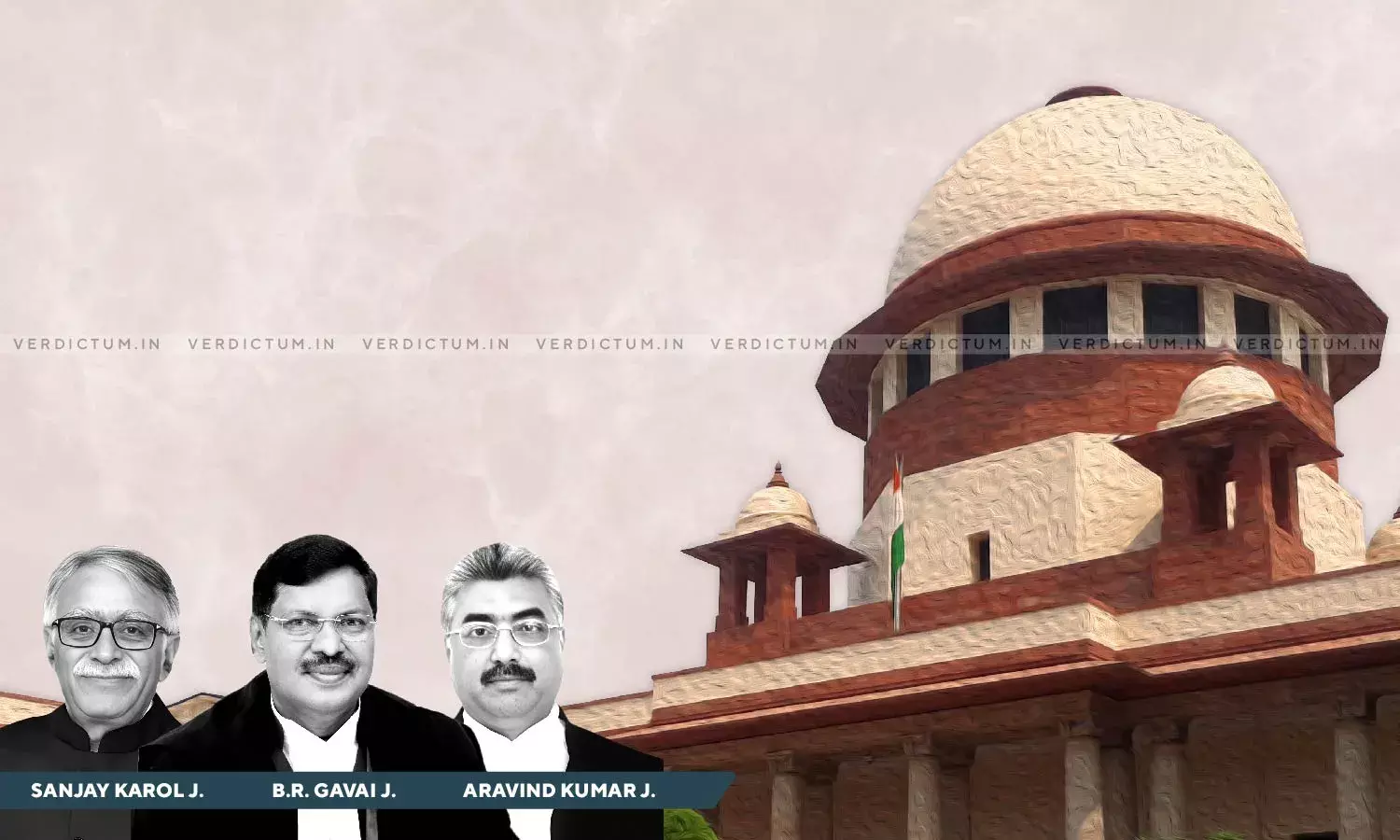Company Neither Sought Nor Consumed Electricity More Than The Maximum Demand Of 10000 KVA: SC Directs TN Electricity Board To Refund Amount

The Supreme Court has directed the Tamil Nadu Electricity Board to refund the amount to the appellant company, the Madras Aluminium Co. Ltd., on the ground that it neither sought nor consumed electricity more than the maximum demand of 10000 KVA.
The three-Judge Bench comprising Justice B.R. Gavai, Justice Sanjay Karol, and Justice Aravind Kumar held, “In view of the factual narrative, it would not be open for the Respondents to contend that the petitioner is not liable for the refund of the amount deposited under protest towards the bills so generated taking the maximum load to be 23000 KVA. Particularly, when at no point in time, the Appellant neither sought for nor consumed the electricity more than the maximum demand of 10000 KVA. … We direct the Respondent namely The Tamil Nadu Electricity Board to return the amount as may be calculated and verified, paid by the Appellant to it for 13000 KVA, in excess to its request of maximum sanctioned demand of 10000 KVA (23000-10000 = 13000 KVA).”
The Bench said that such an amount shall be calculable six months post-making of the application till the date of execution of the new agreement.
Senior Advocate C.A. Sundaram appeared for the appellant while Advocate K. Radhakrishnan appeared for the respondents.
Brief Facts -
The questions that the Apex Court was called upon to decide were, whether the action of the respondents in taking considerable time from when the application was made for reduction to 10000 KVA, to when the revised agreement was entered into, was arbitrary and unreasonable. Contingently, whether the appellant was entitled to a refund of the amount of difference between the amounts payable for 23000 KVA and 10000 KVA which, were paid under protest.
By way of a judgment, the court below sitting in writ appellate jurisdiction upheld the judgment and order passed by the Single Judge, holding that the petitioners (appellant herein, The Madras Aluminum Co. Ltd.) were bound to pay charges as per the contract irrespective of the consumption of 23000 KVA being the maximum contracted load of electricity. The High Court, in appeal, held that such a dispute was not the one to be adjudicated under Article 226 of the Constitution of India.
The Supreme Court after considering the questions that arose before it noted, “No reason whatsoever is forthcoming as to why this particular application required such a vast length of time to be acted upon. In the mean while the Appellant has been faced with the threat of disconnection, and has had to pay, due to such inaction, large amounts of money for electricity which it has not utilized.”
The Court said that the Electricity Board cannot be allowed to take refuge from the clauses while the company on the other hand is saddled with a heavy cost in the interregnum of such a decision.
“Keeping in view the above-stated well established principles that State action irrespective of being in the contractual realm must abide by Article 14, and that a) after passage of a considerable period of time, in July, 2004 the reduction to 10000 KVA was agreed to and a new agreement to that effect was entered into; b) irrespective of the amount of reduction in KVA sought other applications were considered within a reasonable period of time; c) no reason has been put forth for keeping such application pending; d) that the Appellant duly and repeatedly followed up with the authorities to effectuate such reduction; and e) the Appellant has been unjustifiably asked to furnish costs for unutilized electricity which, in any case should not have extended beyond the period of six months (considering ‘reasonable period’ to consider an application, to be so), for a period much larger thereto, rendering such action unquestionably unreasonable and arbitrary”, observed the Court.
The Court also observed that acknowledging the financial health of the appellant, in the 1999 agreement, the respondent ought to have taken a decision of the appellant’s request with a reasonable dispatch and terms which ought to have been within a period latest by six months and not two and a half years as was so eventually done.
Accordingly, the Court allowed the appeals and directed the respondent to make all the payments within two months.
Cause Title- The Madras Aluminium Co. Ltd. v. The Tamil Nadu Electricity Board and Anr. (Neutral Citation: 2023INSC607)


